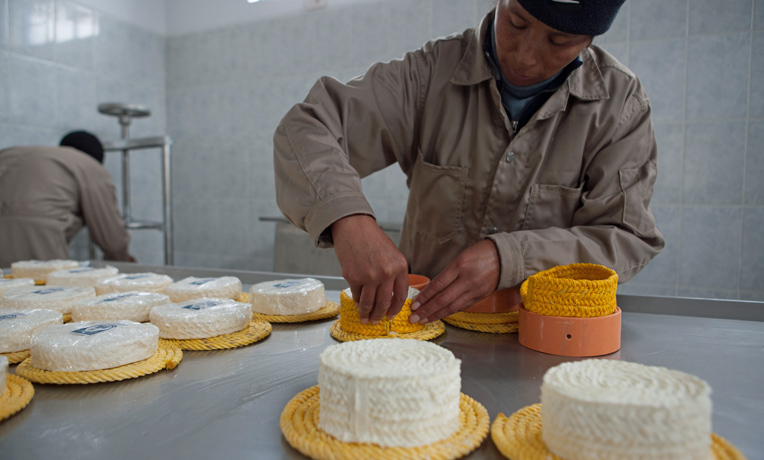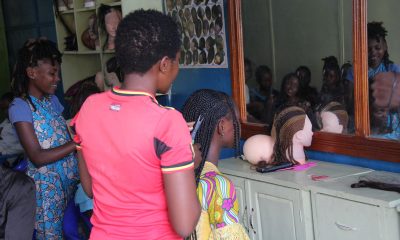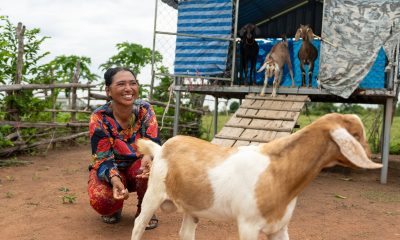Samaritan’s Purse helps a community in the Altiplano of Bolivia work their way out of poverty by increasing milk production
More than 40 dairy farmers, staff from the Samaritan’s Purse Bolivia office and six other organizations, and community leaders joined together to praise God for his provision in providing a plant that will increase production and livelihoods.
The new facility was the culmination of a program that began with humble beginnings a few years ago.
In July 2009, Samaritan’s Purse launched an initiative in Bolivia to help dairy farmers increase production. The Association of Milk Producers of Caquiaviri was born. It started with only 16 people but quickly grew.
“They had needs like how to produce more milk, how to produce better food for the cows, and how to improve the cattle,” said Jonathan Lemus, the Samaritan’s Purse staff member in charge of the project.
The program began by planting grasslands to ensure the steady supply of animal feed. Next, we instructed farmers in basic husbandry techniques.
Less than a year later, we began distributing cattle on a microloan basis. Natives cows only produce about two to three liters of milk per day, but these new animals can produce between 12 and 15 liters in the highlands. When they received the cattle, farmers agreed to repay the animal’s value when they began to receive a return from the sale of milk. The farmers learned new techniques in breeding, and we provided barns to protect the cows from snow and water wells.
The association hadn’t yet organized a formal marketing strategy. But as the project showed success, some of the farmers began to consider the possibility of building a dairy plant that would process larger amounts of milk and allow them to make a bigger profit.

The new plant will help provide an income even during the harsh winters in the Altiplano.
“The original idea was to just help individuals with producing their own milk so they could sell individually to companies in the city, but then they saw that it might be better to build their own processing plant here,” Lemus said. “The people were already raising cows and they were producing cheese and they had the desire to keep increasing their production and to do it in the best way possible.”
Financing was an obstacle, but the association formed a partnership with the municipal government and received some money. Along with funds from Samaritan’s Purse, it was enough to build. After much hard work, the plant was completed in May.
Dairy farmers used to collect a daily average of two liters of milk from each cow; now they collect an average of eight liters per cow. The beneficiaries now make an average of $200 per month from the sale of milk. That’s a significant increase for families who—in many cases—used to only make $2 per day.
“It’s all thanks to our Father, God,” said Sofia Mamani, the president of the association. “It’s a reality now because we have a great Father.”
An Inauguration Focused on God
At the celebration, Mamani and the Samaritan’s Purse staff focused on God’s provision. Although most people in the community generally consider themselves Christians, many of them also still practice the ancient religions of their ancestors.
“One of the main purposes was to give honor and glory to God because the beliefs of this area are that they offer sacrifices to Mother Earth,” Lemus said. “People really came to see that without God’s help, none of this would have been possible. Despite problems, people would be discouraged, but we would encourage them to pray and increase people’s faith.”

The people of the community were told that the dairy plant was further proof of God’s provision.
Samaritan’s Purse helps the association offer trainings once a month to teach the farmers new technical skills to continue to improve production. With the technical training, we also offer a message from the Word of God.
“I’ve been working here for the last two years, and 16 people have come to know the Lord openly,” Lemus said.
As the association completes some final work on the plant, they are hoping to begin providing yogurt for school lunches and other dairy products to large organizations and companies that need them. Most importantly, Mamani prays that the plant will continue to bring people to God’s Word.






